Niche market caters to those who prioritize their well-being rather than pursuing conventional tourism
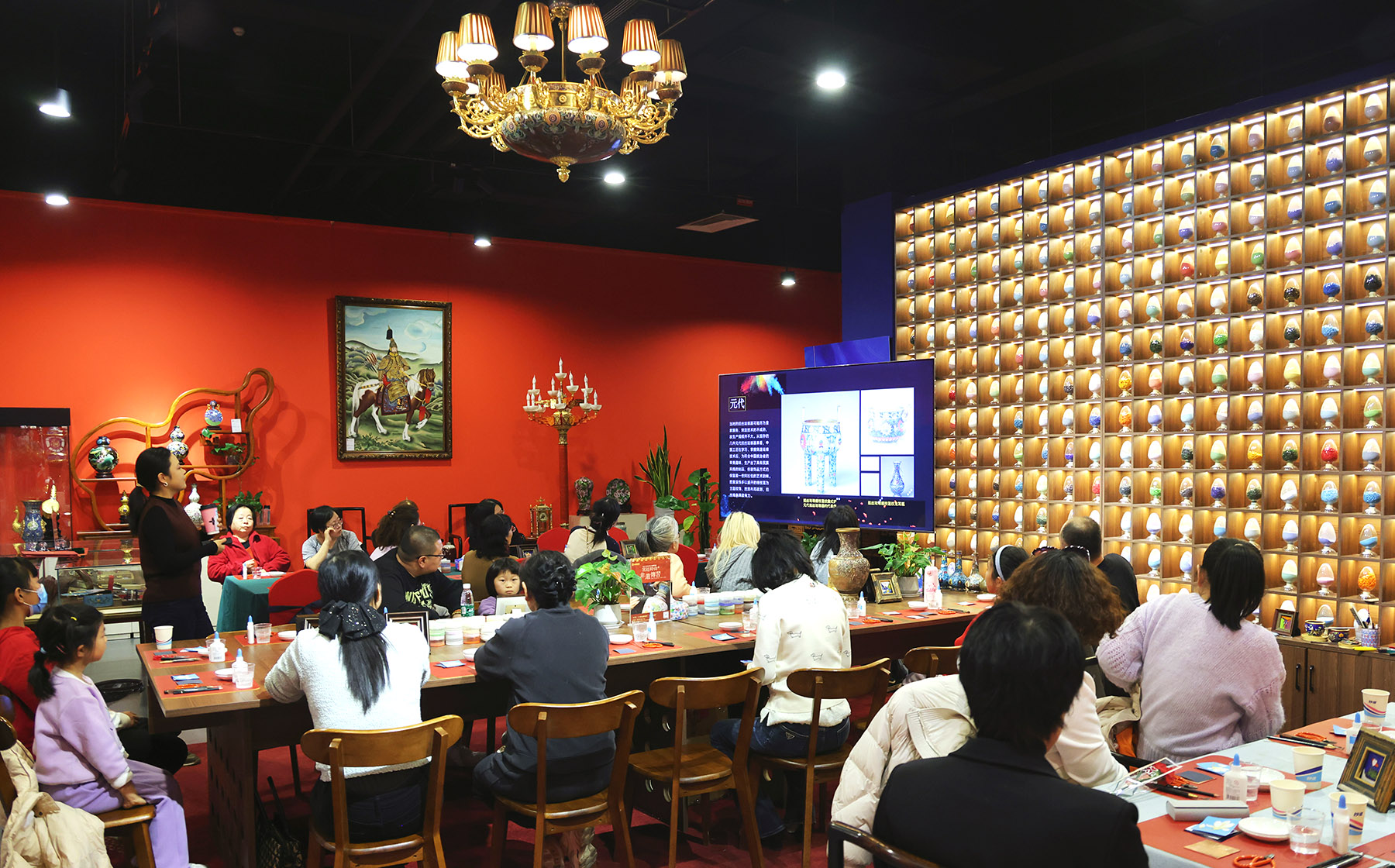
Whenever Qin Shan feels like recharging her batteries after getting tired of the frenzied pace of urban life, she opts for retreats that blend travel with immersive learning experiences.
These retreats, often held in serene locations like Dali and Lijiang in Southwest China's Yunnan province, serve as a unique form of study tourism, combining self-discovery workshops with the refreshing effects of travel.
"I usually take such trips twice a year, and they are the best of both worlds," says the Beijing resident, who is in her 30s.
Unlike conventional tourism, these experiences have enabled her to focus on introspective development through structured coaching sessions that cover self-reflection and experiential learning.
"I have got to take things in perspective — revisiting my personal values, life vision and current challenges," says Qin, who is a psychological consultant.
READ MORE: All aboard sister-city express
She takes a special shine to activities that are designed to foster the mind-body connection, often leveraging the natural surroundings for deeper engagement.
"Escaping urban routines by visiting scenic environments helps me step away from daily stress activators and get my second wind while working through professional hurdles, particularly as I am also an entrepreneur," she explains.
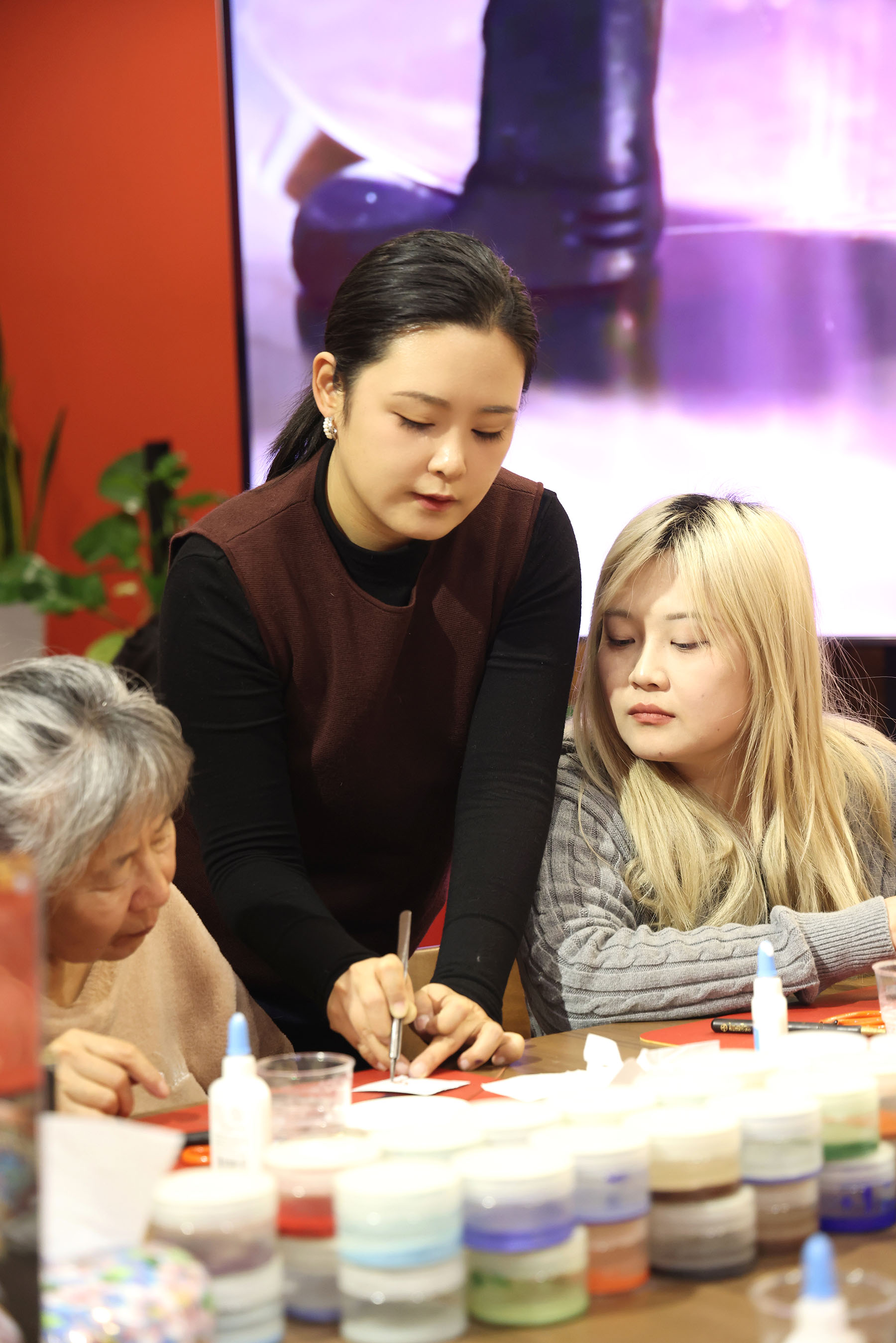
In addition to interactions with professional coaches, Qin says a key draw is the like-minded community.
"Participants are typically open, curious individuals who have enriched the experience with their diverse ideas and offered me inspiration," she notes, adding that group discussions have often led to "energy shifts", leaving her motivated long after the trip ends.
Qin's preference has been part of a growing trend among urban professionals seeking purpose-driven trips that offer more than just sightseeing.
Those adults often select destinations and programs aligned with specific topics they'd like to explore.
Although such learning and travel experience involves higher costs, Qin has viewed them as investments in her well-being and professional development.
Hu Juehong has developed a niche study tourism market catering to those who prioritize self-improvement over conventional tourism. She left her corporate training role at an auto company in 2019.
Hu first established the Juezhi Academy in Ningbo, East China's Zhejiang province. The facility began as a traditional coaching firm for auto executives.
Yet, client feedback revealed a dilemma.
"Employees would joke, 'Why drag us to military-style team-building on weekends when we're already exhausted?'" she recalls.
This sparked her pivot.
Partnering with Singapore-based EQ World that delivers Enneagram (examining core beliefs) and emotional intelligence programs, she designed retreats where managers could punch stress away in wheat-field boxing sessions, realign their minds through sound baths with Tibetan bowls, and debate AI strategy by day before unwinding in ancient-looking lantern-lit alleys by night.
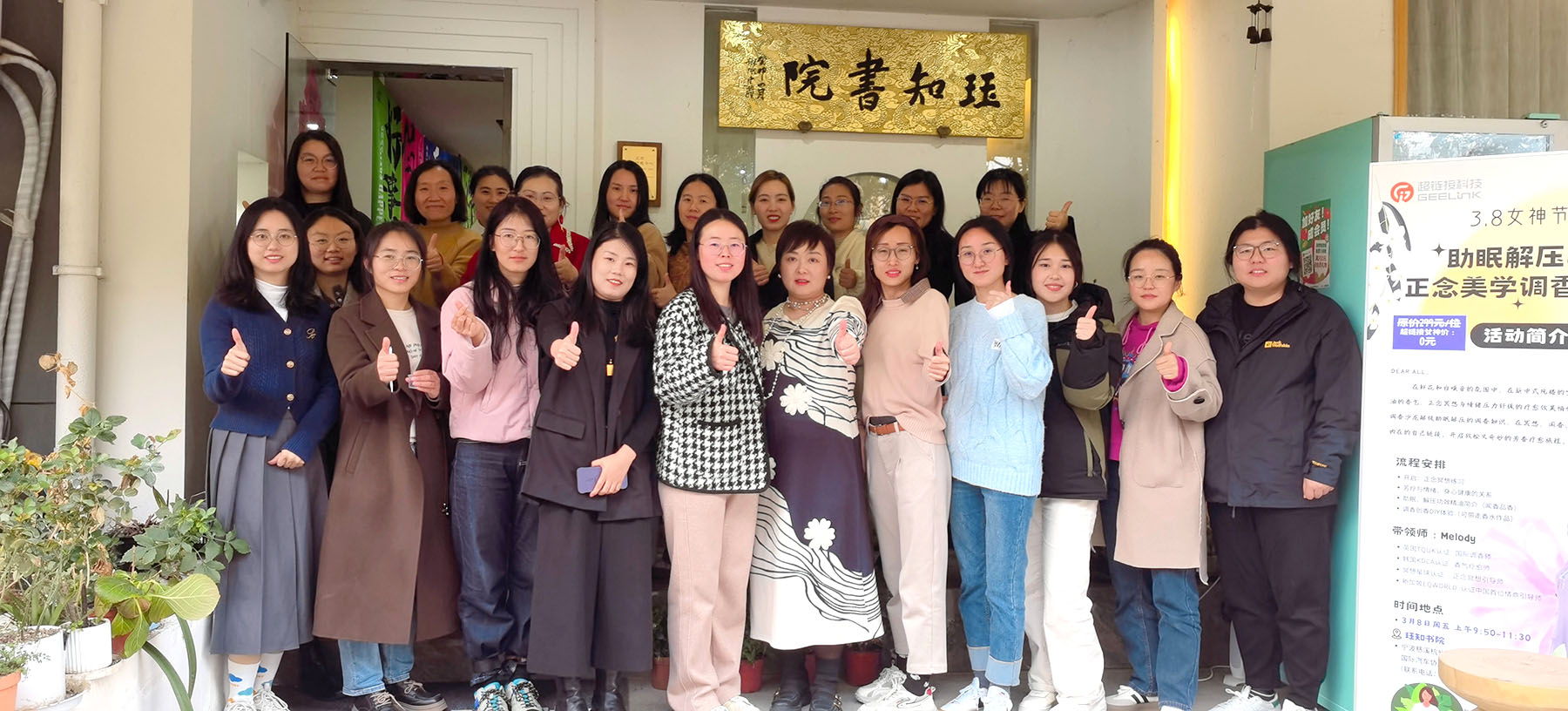
As workplace stress after the COVID-19 pandemic mounted, her arrangement evolved into something of "healing study tourism", which has been popular among overworked professionals.
"They have quite enjoyed our curated blend of skill-building, emotional release, and cultural immersion designed to combat burnout," Hu says.
Since 2023, enrollments to her program have surged 300 percent, with auto and tech firms like Geely allocating budgets once reserved for hard-skills training to these hybrid escapes, she notes.
"It's about hitting pause," Hu explains.
"Urban professionals don't just need vacations, they need journeys that rebuild their capacity to think and lead."
Hu owes the success of her business to responding to specific workplace anxieties — the relentless rat race and the isolation of entrepreneurship.
Even some local authorities now tap her for public initiatives, like the Ningbo human resources and social securities bureau offering her aromatherapy techniques to strained office workers.
The market's demand has Hu believing that her business is more than a post-pandemic fad.
She is now preparing to expand beyond Zhejiang, as her clients have given her positive feedback.
"It's my understanding that they now view travel not as escape, but as intentional space to heal, grow, and return stronger," she says.
In January, the State Council, China's Cabinet, released a list of measures to foster new growth points in the culture and tourism sectors, and boost related consumption. It has given the sector a shot in the arm.
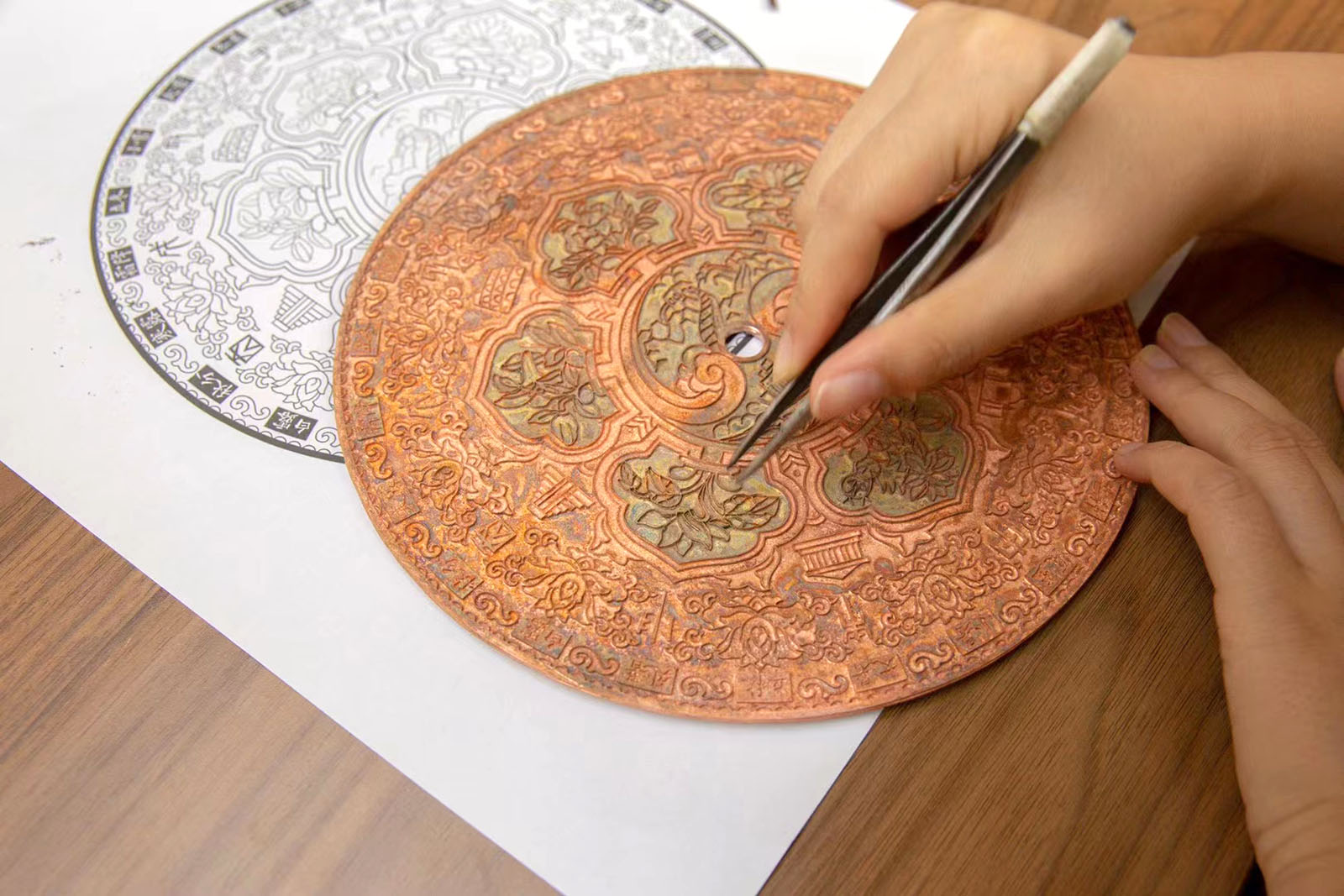
Gao Lili, vice-curator of the Sino-Foreign Enamel Gallery in Beijing, says the gallery is planning to expand its efforts in promoting online teaching to impart the charm of the art form.
Since 2016, the gallery has served as more than a museum that offers a close look at the delicate enamel works and transforms into a vibrant platform for the public to pick up skills behind enamel art.
A hallmark of the gallery is its immersive learning programs, which range from introductory experiences to long-term artisanal training. These include both high-temperature and low-temperature cloisonne techniques, allowing participants to explore the complete process, from wire setting to enameling, firing and polishing.
"We have programs where participants can go through the full crafting process of cloisonne," Gao says.
"Some of our standout programs include a buy-back model — if a student creates an exceptional piece, we purchase it," she adds.
Not limited to single sessions, the gallery offers residency-style experiences where learners can stay at the gallery's workshop for extended periods.
"Some people spend a week, or a month, here to complete more intricate pieces," she observes.
Early workshops catered primarily to children and student groups, particularly those traveling to Beijing. Adults accounted for less than 10 percent of participants at the time. But things have shifted.
"Now, about 30-40 percent of our offline learners are adults, and online, it's higher — up to 50-60 percent," Gao says.
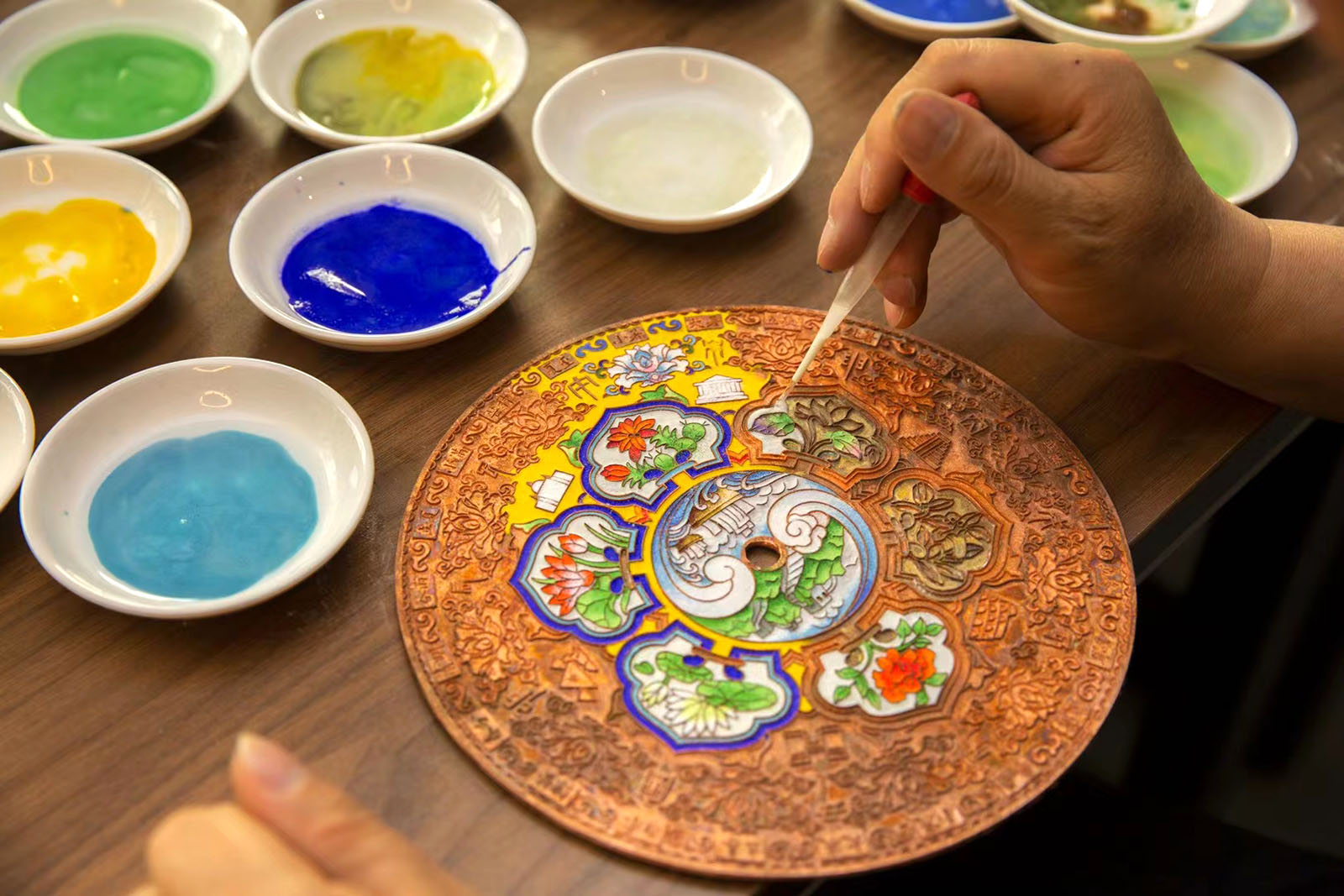
The gallery's adult learners are a diverse and passionate group. Many are designers, educators, traditional culture enthusiasts, or professionals seeking to expand their skills, she points out.
The driving factors for adult participation vary.
Some are drawn by a deepening appreciation for intangible cultural heritage, while others look for stress relief or creative inspiration, she explains.
"Many adults find the process therapeutic," Gao says. "There's a sense of decompression through hands-on work. Some discover new ideas to apply in their professional lives."
To date, the gallery has offered customized courses for children and adults.
"Children's workshops are primarily experience-based: We have to balance hands-on learning with safety," says Gao.
"Adults, however, get more structured, detailed processes, and elements of design and customization."
ALSO READ: Beijing's ancient camel stop revived as tourism hot spot
She emphasizes the importance of personalization in adult programs, noting that frequent participants crave deeper, more engaging content.
"For adult learners, we consider their professions or specific interests and adjust course content accordingly."
Speaking about the biggest pull for the students, Gao says it's "the amazing transformation during firing".
"Before firing at 850 C, the colors are dull and grainy, but afterwards, they turn into smooth, glassy finishes," Gao explains with enthusiasm.
"It's like ceramics — what goes into the kiln is uncertain, and what comes out can be stunning or flawed. But the surprise is what makes it magical," she says.
yangfeiyue@chinadaily.com.cn


